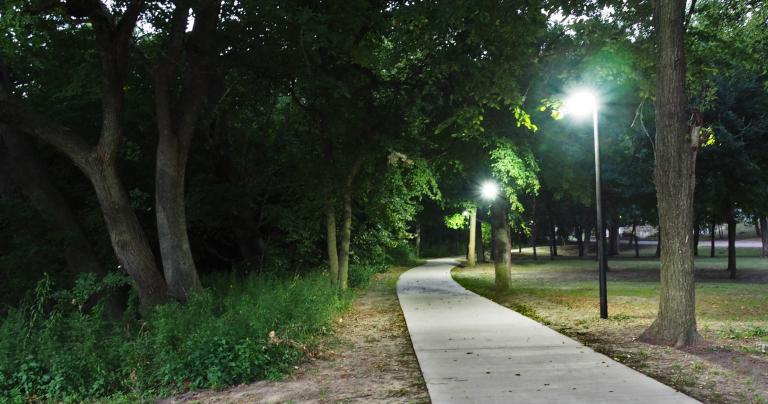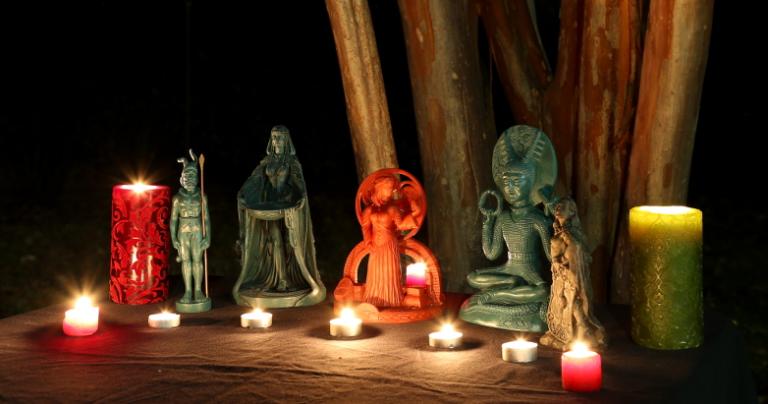Christian fundamentalism in the United States has been losing for the last couple of decades. Fundamentalists embraced Donald Trump in part because they recognize him as one of their own (despite their vast moral and theological differences) but also because he is their “Battle of the Bulge” – their last-gasp effort to extend the culture war and hold on to power. If Joe Biden defeats Donald Trump – particularly if the margin is large and unquestionable – the fundamentalist dream of imposing their ways on everyone else will be dead, at least for a while.
When I wrote about this last week, a Facebook friend asked what else we can do to end fundamentalism besides voting Trump out of office. After some thought, I came up with nine things we all can do to help end fundamentalism.
1. Heal your own fundamentalist wounds
The best way to end fundamentalism is to remove it from your own life forever. If you fight fundamentalism without doing this first, it will always have a tentacle in your soul.
Stop the bleeding – get away from fundamentalist churches, preachers, and their way of thinking. Find an alternative. For me this was Paganism, but you may find a home in an inclusive Christian church. If you leave a vacuum, old ways of thinking will seep back in and you’ll be right back where you were. Build a new life that has no room for fundamentalism.
I’ve written about this on several occasions – these posts may be helpful.
Killing Your Inner Fundamentalist
“Growing Less Religious” and “Overcoming Intuition” – More Bad Assumptions
Exorcising Fundamentalism: The Steps On My Journey
2. Embrace religious uncertainty
At the core of any fundamentalism is the idea that out of all the religious and spiritual traditions in the world, one and only one is completely true and all the others are false. And fundamentalists will go to great links to “prove” their presumed truths.
I remember being a teenager sitting in a Baptist church (involuntarily, of course) hearing the preacher talk about how “you can know this is true” and thinking “no, you believe it’s true.”
I’ve since come to appreciate the knowing that comes through first-hand experience and deep intuition, but that’s not what the fundamentalists mean. They claim things are literally true that clearly are not, like Young Earth Creationism.
Where do we come from? Are there many Gods, one God, or no Gods? What happens after we die? There are many many possibilities. Some of them are more likely than others, but we can’t know which if any are completely true with any degree of certainty.
Religious questions are inherently uncertain. Wrestle with them and see what makes the most sense to you, but reject false certainty.
3. Support women and LGBTQ persons
Patriarchy is a foundational element of fundamentalism. And nothing annoys patriarchs like people rejecting fixed roles around sex and gender.
Is misogyny and homophobia at the core of this? Is it lust for unearned privilege? The assumption that the strong should rule the weak, and the delusion that straight cis men are always strongest? Or that the culture of a few people in the Middle East centuries ago is somehow divinely ordained?
It’s likely a combination of all of the above, but why doesn’t matter. What matters is that anyone whose life rejects “traditional” fixed gender roles is a rejection of fundamentalist values, and therefore helps bring about its end.
And if you happen to like “traditional” sex and gender roles? That’s fine – you do what seems best for you. Just remember to support others whose identities and orientations are different from yours.
4. Promote cultural diversity
While strictly speaking religion is one part of culture, other elements of culture such as dress, hair styles, music, and especially language are often so intermingled it’s hard to tell where religion stops and other elements of culture begin. And while fundamentalists sometimes pay lip service to racial and national diversity (though many times they’re explicitly racist and nationalistic), their missionary programs are designed to export white American capitalist culture right alongside their exclusivist Christian theology and doctrine.
Want to tear it down? Promote cultural diversity. Learn about other cultures, particularly those of your neighbors and coworkers. This will help you be respectful of cultural differences and not assume the way you’ve always done things is the only way (see how that ties in with fundamentalism even though it’s not necessarily religious?).
5. Support liberal and moderate religions
For most people, the alternative to fundamentalism is not atheism. It’s some other, non-fundamentalist religion. The religious impulse is strong in humans, and New Atheist Christopher Hitchens’ comment that “religion poisons everything” is a strawman argument that assumes fundamentalist tendencies in religions that simply do not have them.
So be careful that you don’t buy into the arguments that “religion is stupid” or “all Christians are evil.” The Southern Baptist Convention and the United Church of Christ are two very different kinds of Christians.
Liberal Christians, Buddhists, religious humanists, and other people of good will are not our enemies. We may not be able to worship together (deep down we’re not all the same) but we can work together toward the common good.
Like ending fundamentalism.
6. Ignore arbitrary authority and respect the right of self-determination
Fundamentalism operates on a hierarchy of arbitrary authority. Their God is nominally at the top, but their God always seems to say what the preachers want him to say. Men are above women, women are above children, the rich are above the poor and so on. Those in positions of greater authority must be obeyed and rebellion must not be tolerated.
Why? I’ve yet to hear a good reason beyond “we like it this way.”
Instead, recognize each person’s right to live their life the way that seems best to them. You don’t have to like their choices, but if it doesn’t impact you, it’s none of your business.
And while you’re at it, respect the authority of competence. As a group, fundamentalists are some of the worst for denying the expertise of doctors, scientists, social scientists, and other subject matter experts. Everyone is entitled to their opinion about whether a particular course of action is good or bad. But facts that go against your religious assumptions are still facts.
7. Promote your own inclusive religion
Pagans don’t proselytize. Neither do followers of most other inclusive religions. But fundamentalists do proselytize – it’s one of the reasons their rate of decline has been less than the Mainline Protestants. Recruiting works.
Aggressive, coercive recruitment is unethical. Besides, if you don’t think your religion is the One True Way, why would you want to recruit people who don’t really want to be there?
But people need to know there are religious alternatives, so that when they start to think about leaving fundamentalism, they know there’s someplace for them to go.
That’s one of the reasons I write, speak, and teach. You don’t have to do what I do. And you certainly don’t want to be the Pagan version of the guy who’s always inviting everyone to his church. But to the extent that it’s safe for you, be “out.” Let people know who and what you are – let them know there are many religious alternatives.
8. Work narrowly-targeted magic
Some people like big magical workings for big change. If that’s you, go ahead. It won’t do much harm. But it’s also not likely to do much good.
Magic works best when it’s carefully directed at a very precise target. “Ending fundamentalism” is far too broad and high-level to be effective.
But you can work magic for your own religious healing, or for the healing of someone who comes to you for help. You can work magic to help change laws and practices around diversity and inclusion. You can work magic to help publicize your big public ritual… whenever we get to have big public rituals again.
If you really want to end fundamentalism, use all the tools at your disposal… just use them wisely and in the most effective manner.
9. Remain vigilant
There are two things to watch out for as you work to rid the world of this religious plague.
The first is that you become so obsessed with what you aren’t that you forget what you are. Once you make good progress toward healing your own wounds, most of these other steps should be done as part of being a good Pagan (or a good Buddhist or UU or liberal Christian or whatever you decide to become). When you define yourself by what you’re opposed to, you never really leave it behind.
I left fundamentalist churches in my early 20s. I didn’t completely exorcise fundamentalism from my soul until I built a strong Pagan practice in my early 40s.
The second thing to watch for is complacency. Fundamentalism is more than a religious movement. It’s a human impulse, driven by a desire for certainty and superiority. That’s why we see it not just in Christianity but also in Islam, atheism, and even Buddhism.
Christian fundamentalism in the United States is dying, and a decisive victory over Donald Trump in the upcoming elections will hasten its loss of power. But it will never be truly dead. It can be kept down only by a respect for diversity and a refusal to make unsupportable claims of certainty.




















